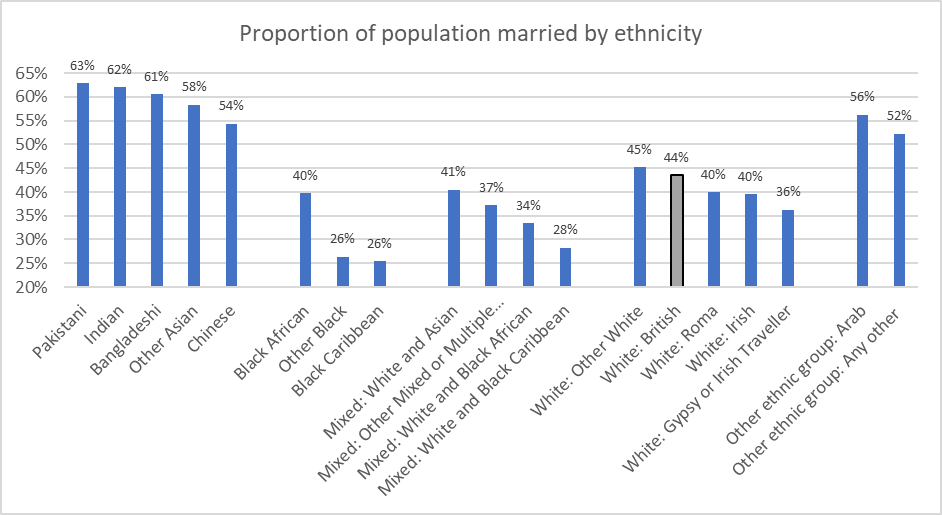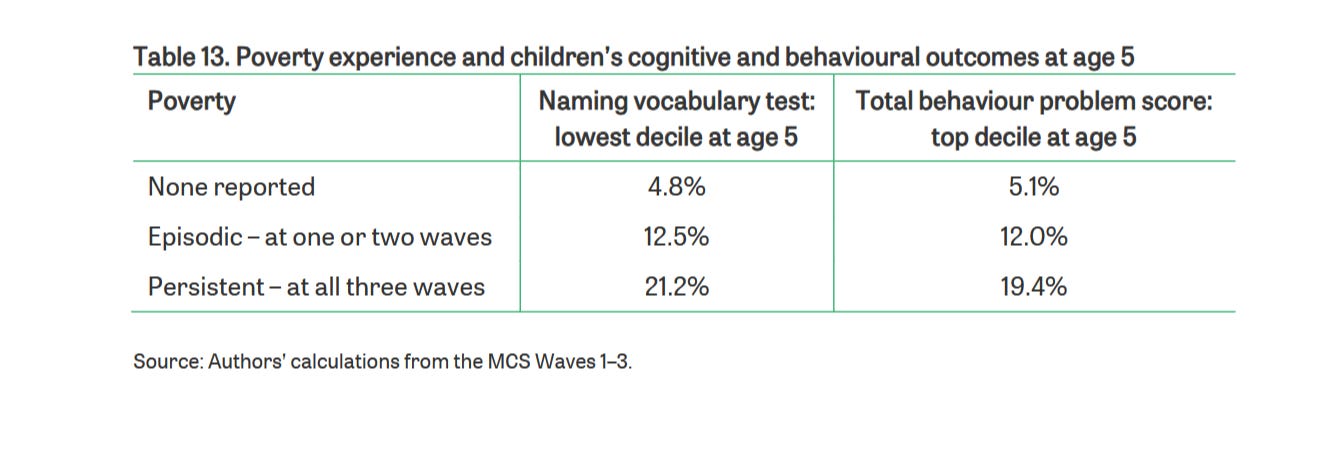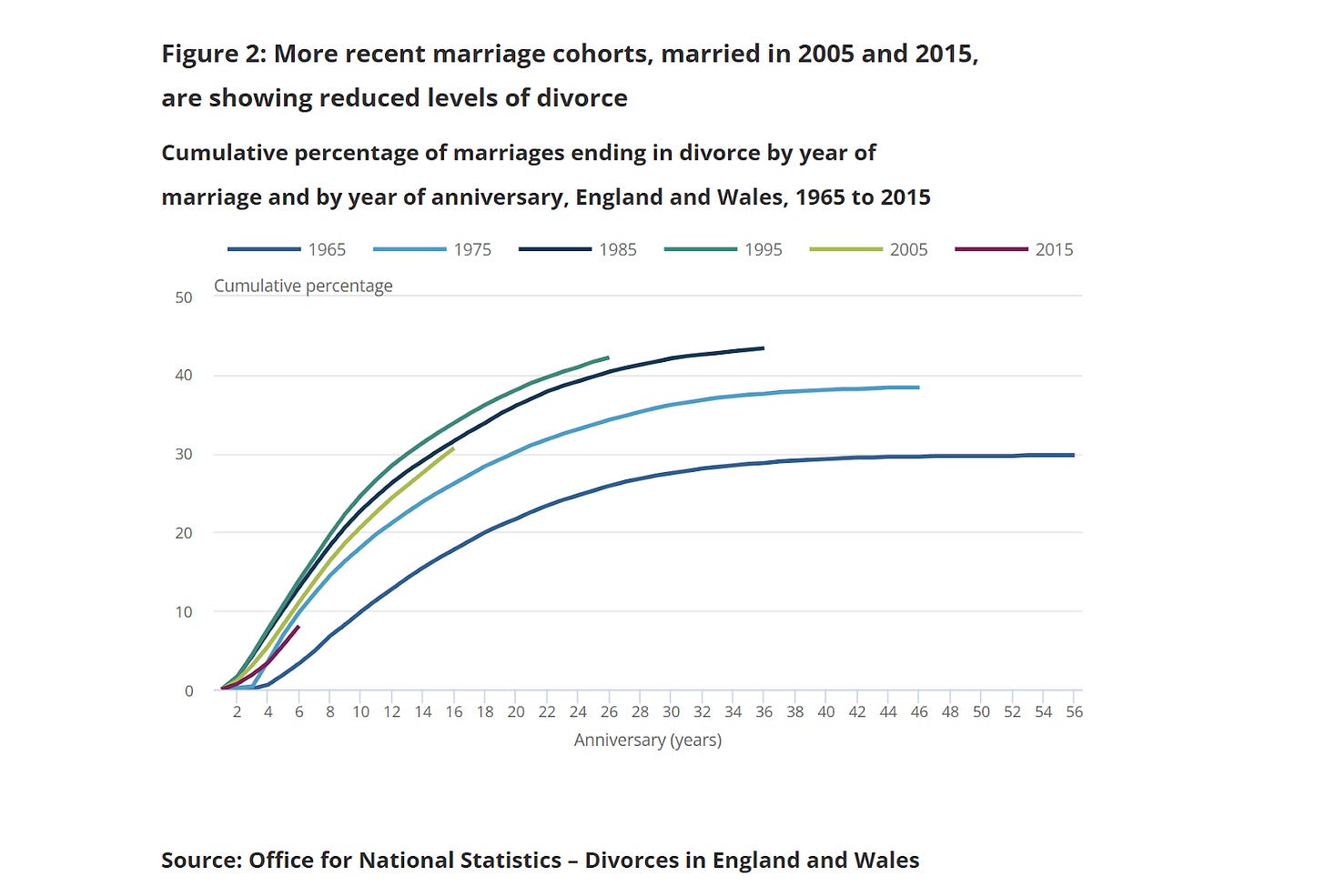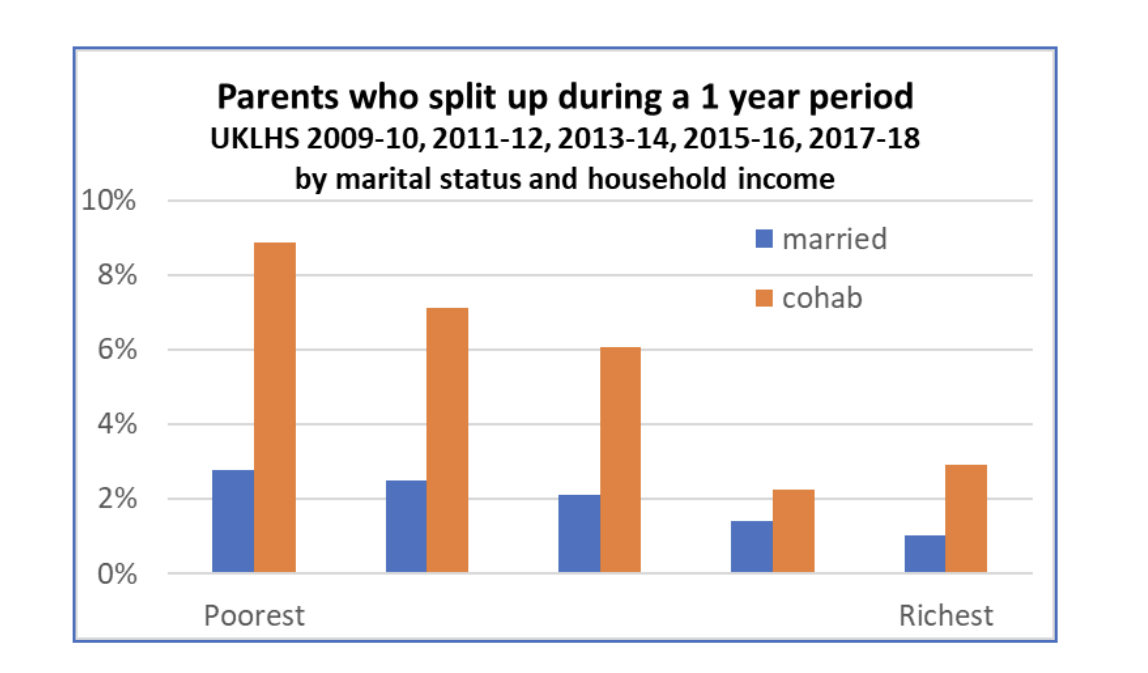Does marriage still matter? Video sources
Greetings to you all, my apologies for not having emailed in a while. I’ve made two videos recently on the topic of marriage, which have of course triggered some strong debate. I look at marriage as a social institution which if used correctly can serve as a base on which to build strong, loving families and thus healthy communities. Marriage is not a panacea. People don’t suddenly become super wealthy, healthy and happy simply by tying the not. However, I do think that marriage is the best tool we have to build those strong families we so crave.
So, my two last videos first - The Unspoken Benefits of Marriage and secondly, a follow-up video called Do Half of all Marriages End in Divorce? Below are the sources I used in the videos:
Ethnic disparities in marriage rates
https://www.civitas.org.uk/2023/05/10/who-gets-married-and-who-doesnt-evidence-from-the-2021-census/
Correlations between marriage and various life outcomes
Please note these are correlations. We can’t necessarily say that marriage leads to these positive outcomes unless we have some further data. In fact, in a future video I will dig further into these correlations and suggest which way the causation probably goes:
Married mothers have better mental health
Benefits of Marriage
Married parents less likely to break up: https://marriagefoundation.org.uk/research/source-of-family-breakdown/
Break ups impact children (especially boys) if the breakup happens at or after age 7. All children are affected emotionally but only boys are affected via behavioural problems (https://cls.ucl.ac.uk/timing-of-parents-split-matters-for-childrens-mental-health-new-research-reveals/)
Marriage appears to be better for mothers’ mental wellbeing
Which means children experience between cognitive and behavioural outcomes.
Married families are less likely to experience income poverty
Which in turn means children are, again, less likely to have poor cognitive and behavioural outcomes:
How many marriages end in divorce in the UK?
Depends on when people got married:
Cohorts from 1965 and every 10 years after
This enables us to see the percentage of marriages that started in each of those years that ended in divorce after one year, two years, five years, 20 years etc
The 1985 cohort had the highest divorce rate, reaching 42% in 2022 (36th year of marriage)
A lower proportion of marriages from 2005 and 2015 had ended in divorce compared with earlier cohorts at the same duration https://www.ons.gov.uk/peoplepopulationandcommunity/birthsdeathsandmarriages/divorce/bulletins/divorcesinenglandandwales/2021
Divorce rates per 1,000 married people are at their lowest for over 50 years. This is not a direct result of lower people getting married, because it is a proportion of those who do get married (however, as I’ll explain in future, it is indirectly related to the lower marriage rates).
Divorce and Social Class
Parents that have the highest household earnings have the lowest likelihood of breaking up
We also see that whether parents were married or not makes a big difference to the chances of break up. Married parents are far less likely to break up than cohabiting parents
This is the case across all family income brackets. I.e. in the richest household income bracket, married parents were much less likely to have broken up than their cohabiting peers
In fact, married parents in the poorest income bracket are less likely to break up than cohabiting parents in the richest income bracket https://marriagefoundation.org.uk/wp-content/uploads/2022/05/MF-10-year-research-note-The-Stability-Gap.pdf














